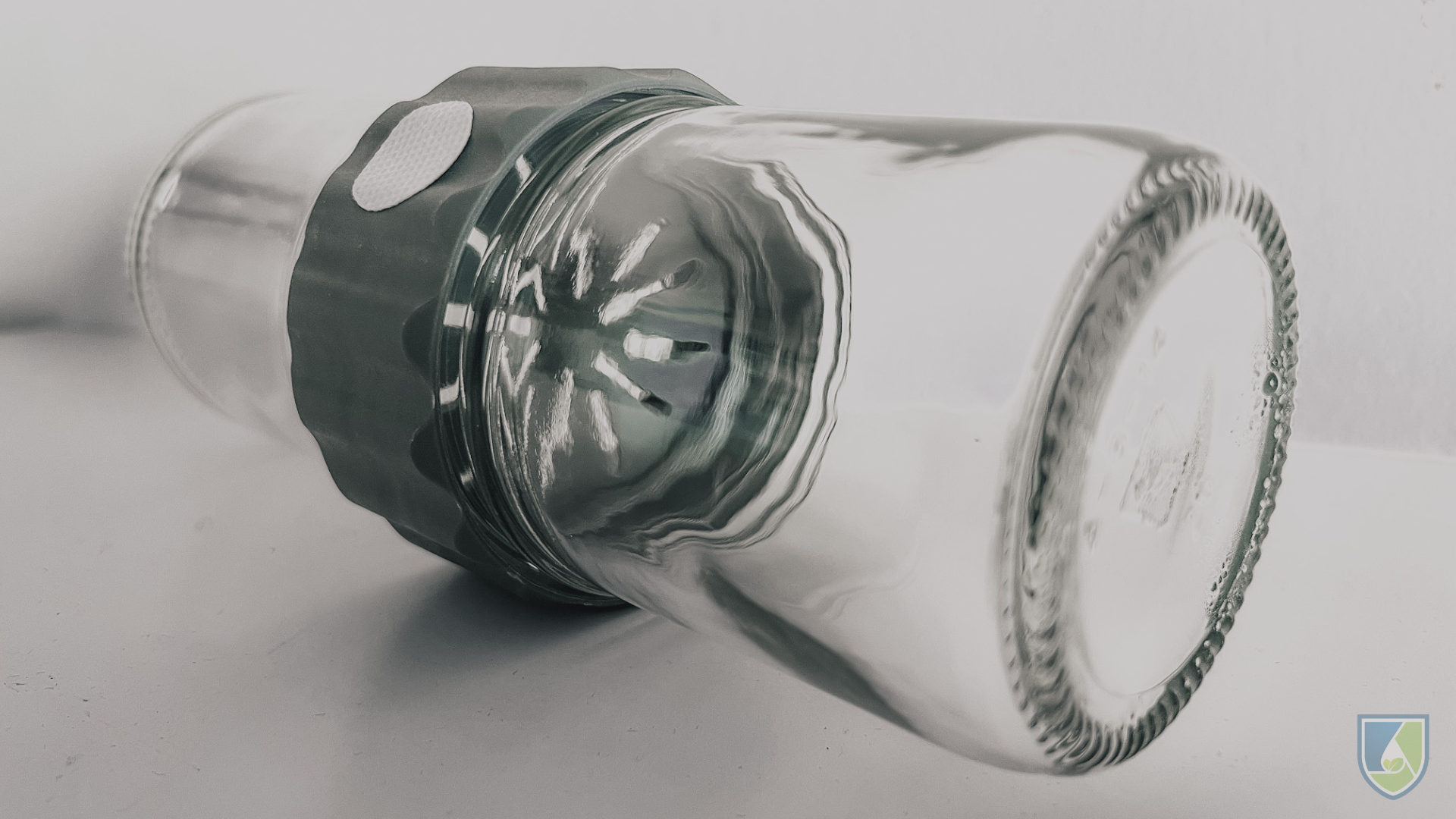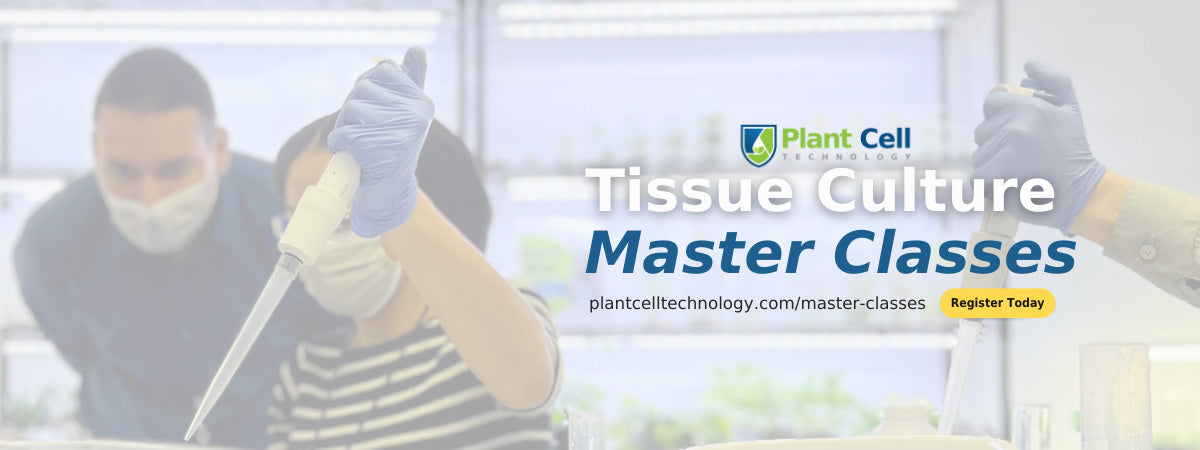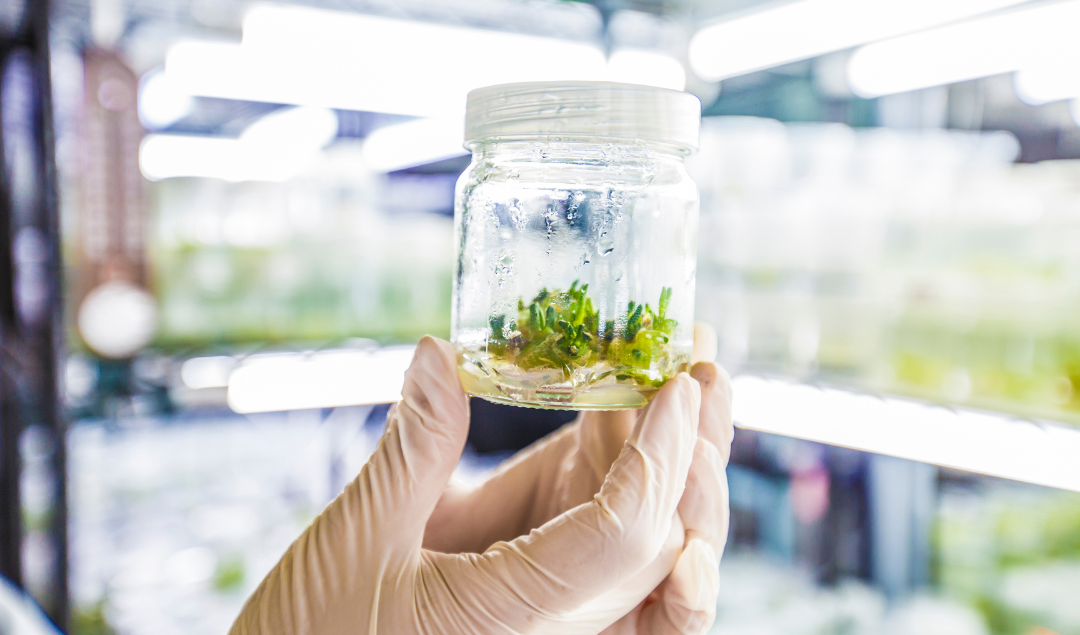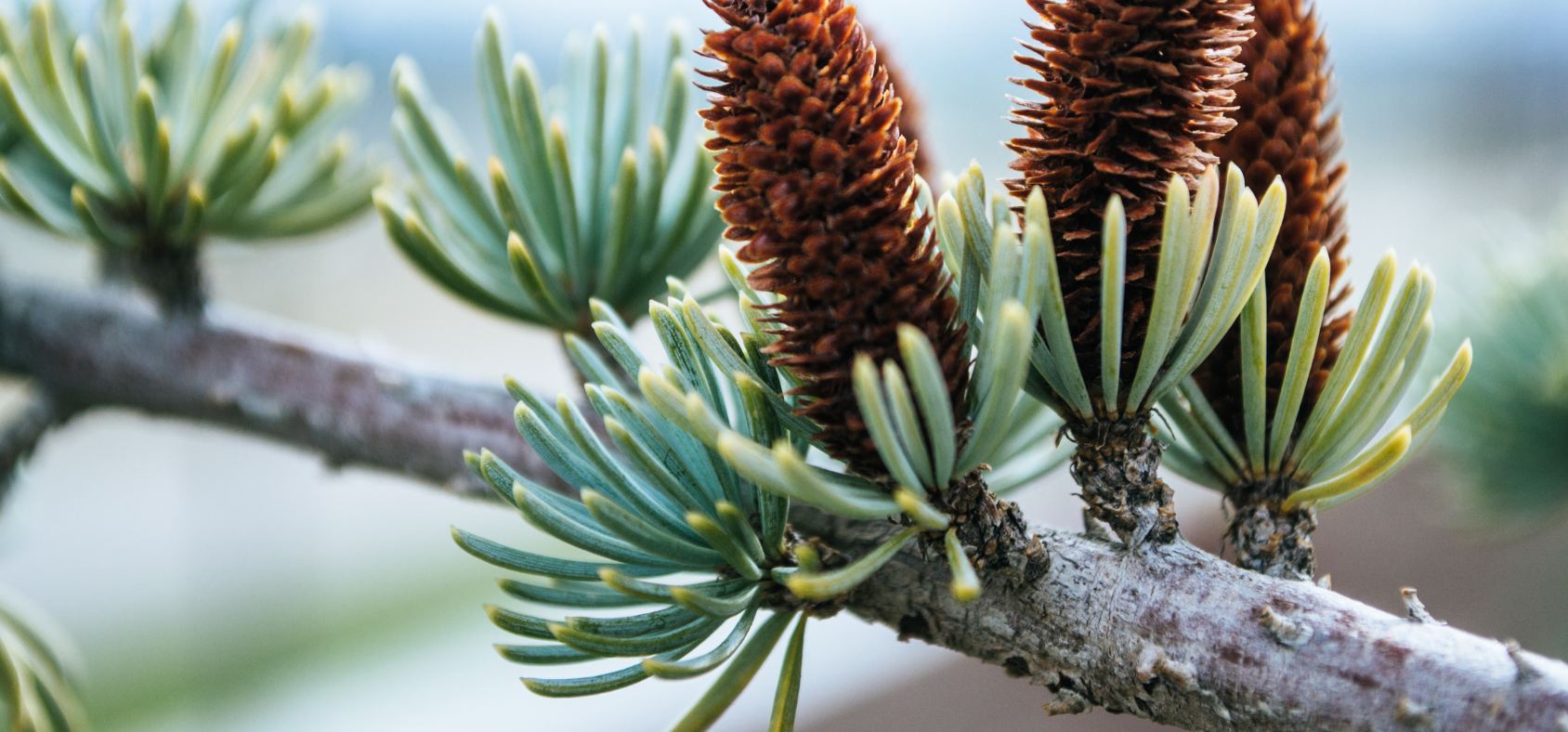
Can you plant tissue culture at home Using the BioCoupler™?
As a content and community manager, I leverage my expertise in plant biotechnology, passion for tissue culture, and writing skills to create compelling articles, simplifying intricate scientific concepts, and address your inquiries. As a dedicated science communicator, I strive to spark curiosity and foster a love for science in my audience.


With our proprietary simplest temporary immersion bioreactor, you can multiply hundreds of plants in a single jar. No extra space required like traditional bioreactors or too much media requirement.
Introduction
How many times have you thought about increasing the efficiency of your home-based tissue culture lab?
Tried to google search the devices, organizers, racks, and tips on best utilizing your space for your small plant business or hobby?
Been there, done that!
Whatever solution you see out there is of increasing your experiment lab area, renting another place, etc. However, what if we say you don’t need any such things?
Yes!
With our proprietary simplest temporary immersion bioreactor, you can multiply hundreds of plants in a single jar.
— No extra space required like traditional bioreactors or too much media requirement.
— No plants choking to death.
But, wait a minute what are Biocouplers™?
So, here’s an introduction to this awesome product!
Biocoupler™—The Simplest Temporary Immersion Bioreactor

Biocoupler™ is the proprietary product of Plant Cell Technology that’s designed to ease your tissue culture multiplication stage.
In one jar you can produce hundreds of plants.
This simple device consists of a two-sided closing cap with vent filters. On both sides, you can close two Mason jars. And, that’s it! Isn’t it the simplest?
However, in terms of its efficiency and operation, it provides bigger value. In just a small space with a few more Biocouplers™, you can obtain thousands of shoots. This gets more exciting when you know you don’t need a lot amount of media to grow plants in the jar.
You just need ¼ of the media of the size of the jar you use. And, submerge your plants in the media just once or twice a day by tilting the jar and keep the plants submerged in the media for about 30 seconds to one minute. That’s it!
We’ll learn more about the usage of Biocoupler™ ahead in this article. But, before that…
How Biocoupler™ Are The Best Fit For Home-Based Labs to Elevate Their Efficiency?

If you know about traditional bioreactors, you know the amount they cost, the space they require, and how difficult it is to find their spare parts and repair them when required.
There’s no such complexity involved with Biocoupler™!
Even if you create a DIY bioreactor, you understand the time it consumes, and the accuracy of building the reactor you need, plus giving extra time to understand its theory and then adding the parts together to build something that works.
And, if you’re new to this, it would be nothing but a mess!
Who likes mess, right? We all need easy tasks.
With Biocoupler™ you just need two things: Bioocupler and two mason jars. Yeah, that’s it!
In a home-based lab where space is an issue, budget is a challenge, and keeping the plants safe even in difficult environments is another additional difficulty, Biocoupler™ turns out to be the hero to save your small biz or lab!
The icing on the cake is the affordability of the Bioocupler. It only costs around $16.49 for one Biocoupler™. No worries about the cost of spare parts, as the only part associated with the device is the filter, which comes in just a couple of dollars.
Now you’re excited about it, right?
So, let’s answer the last question you might have in your mind:
How To Use Biocoupler™?

Follow the given steps to best utilize the Biocoupler™ in your tissue culture application:
- Prepare liquid tissue culture media using PCT’s MS media and add sugar based on the quantity of media you’re making (generally for 1-liter media, 30 grams of sugar is added). (DO NOT add Agar).
- Take the Biocoupler™ and connect two Mason jars at their two ends.
- Measure 200 ml of prepared MS media.
- Open one side of the Biocoupler™ and add the measured 200 ml media to it.
- As you have prepared 1000 ml media, so can prepare a set of 5 Biocoupler™ with 200 ml MS media each.
- After filling the jars, close the Biocouplers™ loosely and autoclave them!
Open the Biocoupler™ under the laminar hood after autoclaving and transfer your plants into it. That’s it!
Incubate your Biocouplers™ in the right environment, having the right temperature, humidity, and light conditions.
To submerge the plants in the media, you need to tilt the Biocoupler™ in a way that the media move to the jar containing plants. Then, keep the explants submerged for about 30 seconds to 1 minute.
You need to tilt the jars once or twice a day to ensure that your plant receives the optimum amount of nutrients for its proper growth and development.
Watch this video to learn how you can use Biocoupler™ to make $5K per month.
NEED HELP WITH USING TISSUE CULTURE EQUIPMENT AND INTRODUCING PLANTS TO TISSUE CULTURE? PLANT CELL TECHNOLOGY IS YOUR PARTNER!

Plant Cell Technology is helping tissue culturists worldwide by providing unique and world-class products and services that smoothen their process. The PCT Store has MS media, agar, gellan gum, Plant Preservative Mixture (PPM™), culture vessels, Biocoupler™, and masks in its store to facilitate your processes.
And, that’s not it! Plant Cell Technology also offers consultation services to culturists of all sizes that help to get instant solutions to your tissue culture problems.
This allows you to directly talk with our in-house tissue culture expert. He will join you in a video call and will answer all and every question you will have regarding using the equipment or introducing your plants in tissue culture. It’s the best approach to getting instant solutions to your tissue culture problems.

We also curate weekly blogs and videos on tissue culture topics. They are all related to tissue culture equipment, practicals, tips, and tricks, how-tos, basic concepts, and the latest news. Our youtube videos teach you exactly how to carry out the tissue culture operation.
Occasionally, we also bring you comprehensive master classes led by tissue culture experts. So far, we have conducted tissue culture master classes on Cannabis and rare house plants and we have many other classes scheduled for you.
Interested in learning more about our master classes and joining your favorite one? Visit this link now!
Blog Categories
View by Level
Popular Blogs

Media pH: Why It Matters More Than You Think in Plant Tissue Culture
Introduction Plant tissue culture is a cornerstone technique in modern plant biotechnology, enabling the propagation of plants under sterile and...
Read More
Can We Grow Wood in a Lab? The Future of Tissue Culture in Forestry
Introduction Wood has long been a cornerstone of human civilization—used for shelter, tools, paper, energy, and countless everyday items. However,...
Read MoreSubscribe to Our Newsletter







Join the conversation
Your email address will not be published. Required fields are marked